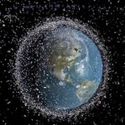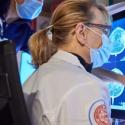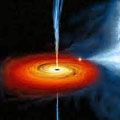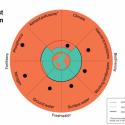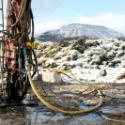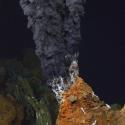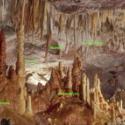Science Is Essential
Science touches so many aspects of modern life that it's hard to keep up. Through our programs and this website, Science for the Public provides up-to-date information about scientific innovations, discoveries, and issues that are shaping modern knowledge.
Coming Events
No events are scheduled for June or July
Recent Events
Space Debris Alert!: The Potential Impact on the Ozone Layer and Earth’s Climate
05/27/25 (rescheduled from April) Thousands of satellites orbit Earth. At the end of their missions, they drop into and burn up in the stratosphere, depositing ash that contains oxides and pollutants that are affecting both the ozone layer and the planet's climate. Atmospheric scientists are working to analyze the aerosols and their worrisome impact. Daniel Cziczo
The Brain-Computer-Interface Paradox
05-20-25 For individuals paralyzed by injury, stroke or ALS, brain-computer-interface (BCI) devices can enable movement and even speech. However, there are concerns: specifically, that such technology could be developed for mind control. Lukas Meier
Cancer Research: How It Works and Why It's Crucial Today
04/08/25 Numerous types of cancer are increasing today and scientists are trying to identify the causes. That's why cancer research is one of the most important concerns of modern science. We learn how the research is done and also why federal funding for this work is essential. Gerald Denis
Cosmos: Galaxies
Stars formed in clusters in the huge clouds that became the early galaxies...
Black Holes
Proof that massive stars would form black holes was rejected because of bias.
Resistance to New Ideas
Many of the most important advances in scientific understanding were initially rejected or ignored.
Life: States of Animacy
Hibernation, dormancy, suspended animation, revival from apparent death; the line between life and death...
Featured Items
Addressing the Threat to Earth System Boundaries
09/12/23 The breaching of most of the Earth system boundaries (ESBs) is destroying the planet and the crisis must be addressed immediately. Solutions must include justice for those who suffer displacement, health and economic impacts of the crisis. Diana Liverman
Analyzing Clouds and Climate Change
09/26/23 Clouds protect the planet and play an essential role in climate dynamics. How will the rapidly heating planet affect that relationship? Daniel Cziczo
Carbon Capture and Storage Will Not Reduce Global Warming
02/09/24 GBH Forum Network webinar (noon ET) The extreme level of atmospheric CO2 is well beyond a “capture and storage/sequestration” solution, yet the hype persists that some clever extraction innovation will resolve the problem. Charles Harvey
Heads Up! Surprising Stats
Science for the Public is committed to improving public knowledge of science and public appreciation for the contributions of science to social progress.

Formation and Diversity of Planetary Systems
11/08/21 Advanced technology reveals a super-abundance of planetary systems in the universe. And astronomers are investigating how these systems form as well as their amazing diversity. Joan Najita
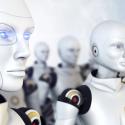
Our Robots, Ourselves
02/10/16 The author of "Our Robots, Ourselves" discusses the limits of robot autonomy. David Mindell
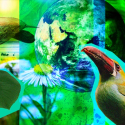
Biodiversity in the Sixth Mass Extinction
03/19/24 A prominent biologist explains the crucial importance of biodiversity for life on Earth, and how the sixth mass extinction fractures that stability. Michael Reed.
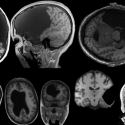
Unusual Brain Adaptations
05/30/23 Language acquisition despite the absence of a critical brain region for language demonstrates the remarkable adaptability of the human brain. Evelina Fedorenko
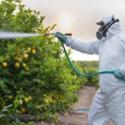
The Struggle to Ban Pesticides That Disrupt Brain Development
07/05/22 Scientists struggled for decades to get an EPA ban on Chlorpyrifos, a widely used pesticide known to impair brain development. As autism, ADHD and other developmental conditions increased, vested interests blocked efforts to regulate Chlorpyrifos and other agricultural toxins. Philip Landrigan

Designing Sustainable Urban Development
11/25/19 How the world-class Sustainable Design Lab at MIT combines architecture, engineering, physics --and creative genius-- to design the optimal urban environment.
Christoph Reinhart
Today's Featured Contributors
Featured Author

Paul Steinhardt, Ph.D.
An excellent resource on cosmology for the general reader, co-authored by one of the greatest theoretical physicists of our time
Featured Guest

Lynn Adler, Ph.D
A biologist who investigates the relationship between bumblebees, their preferred food-flowers, and the transmission of bee diseases.
As a world society, it seems clear that we have arrived at a point in our history when there must be a major increase in the capability of ordinary people to cope with the scientific and technological culture that is shaping their lives and the lives of their children.
—Leon Lederman, Nobel Laureate in physics

